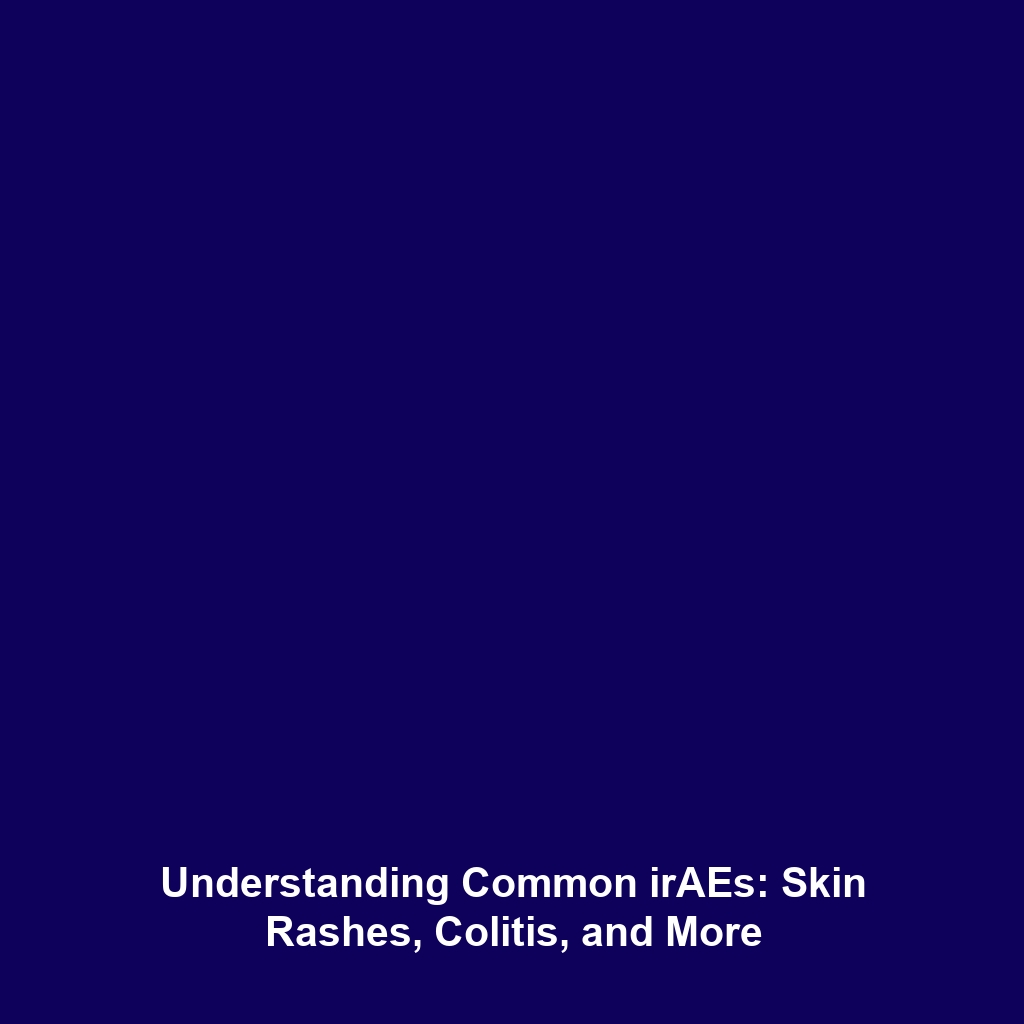Common irAEs: Skin Rashes, Colitis, Hepatitis, and Pneumonitis
Introduction
The emergence of immunotherapy has reshaped the landscape of cancer treatment, offering hope where traditional therapies may have fallen short. However, with its increased adoption comes the risk of immune-related adverse events (irAEs), which can significantly impact patient health and treatment outcomes. Among the most prevalent irAEs are skin rashes, colitis, hepatitis, and pneumonitis. Understanding these conditions is crucial not only for healthcare professionals but also for patients navigating the complexities of immunotherapy in the fight against cancer.
Key Concepts
Understanding Immune-Related Adverse Events
Immune-related adverse events (irAEs) represent a unique set of side effects resulting from the activation of the immune system by immunotherapy agents. Unlike traditional side effects, irAEs can affect various organs, leading to potentially serious complications. Key concepts include:
- Mechanism of Action: Immunotherapy works by enhancing the body’s immune response against cancer cells. This can inadvertently lead to attacks on healthy tissues.
- Frequency and Severity: The incidence and severity of irAEs can vary widely, with skin rashes being the most common, followed by gastrointestinal, hepatic, and pulmonary complications.
Applications and Real-World Uses
The recognition and management of common irAEs are vital for effective cancer treatment. How do these conditions manifest in real-world applications?
- Monitoring and Early Intervention: Regular dermatological assessments can facilitate early detection of skin rashes, improving patient outcomes.
- Treatment Adjustments: Understanding the incidence of colitis, hepatitis, and pneumonitis allows for timely intervention and potential treatment regimen modifications specific to individuals.
Current Challenges
Despite advances in immunotherapy, several challenges remain in managing common irAEs:
- Variability in patient responses to therapies can complicate diagnosis and treatment.
- Limited research on the long-term effects of managing irAEs hinders the development of standardized treatment protocols.
- Healthcare provider awareness and education regarding irAEs are often insufficient, leading to delayed interventions.
Future Research and Innovations
The field of immunotherapy is rapidly evolving, with ongoing research focused on mitigating the impact of irAEs:
- Next-Generation Treatments: Innovations such as combination therapies hold promise for reducing the incidence of severe irAEs while maintaining efficacy.
- Biomarkers: Research is underway to identify biomarkers that predict susceptibility to irAEs, potentially leading to personalized treatment strategies.
Conclusion
Common immune-related adverse events such as skin rashes, colitis, hepatitis, and pneumonitis are significant considerations in the field of immunotherapy for cancer. Their management is critical to optimizing therapeutic outcomes and enhancing patient quality of life. Ongoing research and innovations will help in addressing these complex challenges. For further reading on how to manage these irAEs or to explore more about the implications of immunotherapy in cancer care, refer to the following links:
- Managing Skin Rashes in Patients Undergoing Immunotherapy
- Latest Advances in Immunotherapy for Cancer

Leave a Reply